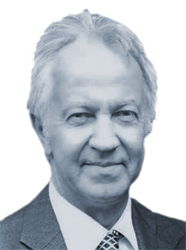 In October 2005 Michel Platini, on behalf of the French government and its then President Jacques Chirac, presented the Legion d’Honneur to his old Saint-Etienne team-mate Ivan Curkovic.
In October 2005 Michel Platini, on behalf of the French government and its then President Jacques Chirac, presented the Legion d’Honneur to his old Saint-Etienne team-mate Ivan Curkovic.
The ‘National Order of the Legion of Honour’ was created by Napoleon in 1802 and is the country’s highest decoration, albeit split into five levels. Foreigners are awarded a ‘distinction’ and this is the rank held by Curkovic since he is a Serb.
In fact, he is a significantly important Serb. Now 67, Curkovic played 19 times in goal for the former Yugoslavia between 1963 and 1970. After starting with home-town Velez Mostar he starred at army club Partizan Belgrade and then, between 1972 and 1981, with Saint-Etienne.
This was the greatest era in the history of Les Verts. They won four league titles, three French cups and were runners-up to Bayern Munich in the 1976 European Champions Cup Final.
Curkovic was a senior, influential figure within not only the team but the club. Hence it was no surprise that, on retiring and returning home, he raced up the administrative ladder to become president of Partizan then president of Serb Olympic Committee and a vice-president of the national football federation.
Another former Partizan star who has risen to power, albeit in a different context, is Fadil Vokrri.
He played for the club in the late 1980s, two decades after Curkovic. Vokrri was also then only player from Kosovo, to the south, to play national team footballer for the old Yugoslavia.
Sadly, such is the complication of life in the Balkans, that two men with career steps in common, find themselves apparently in opposition.
Events of the 1990s left Yugoslavia in fragments. Bosnia and Herzegovina, Croatia, Macedonia, Montenegro and Slovenia have all gone their own independent ways. Only Kosovo remains in limbo: recognised by more than 90 nations but not yet by the United Nations and hence not as potential membership material by UEFA and FIFA.
Vokrri and his federation know they must wait on political solutions. In the meantime they have written repeatedly to UEFA and FIFA seeking permission for club and representative teams to be allowed to play friendly games against member nations.
The latest request was considered by FIFA’s executive committee two weeks ago. But the exco was more concerned with the 2014 World Cup razzmatazz and president Sepp Blatter’s reform proposals.
Two days later Vokrri was informed by secretary-general Jerome Valcke that the request had been discussed by the FIFA Associations Committee and then by the exco and rejected . . . “on the recommendations of the UEFA executive committee.”
No reason was given. Privately, the Kosovars suspect that Curkovic has too much influence over the old team-mate who once presented him with the Legion d’Honneur.
This writer did raise all these issues with UEFA. The media department kindly pointed me to FIFA’s own statutes prohibiting matches against non-members.
Not so much a football game, more a circle game.
By Keir Radnedge







